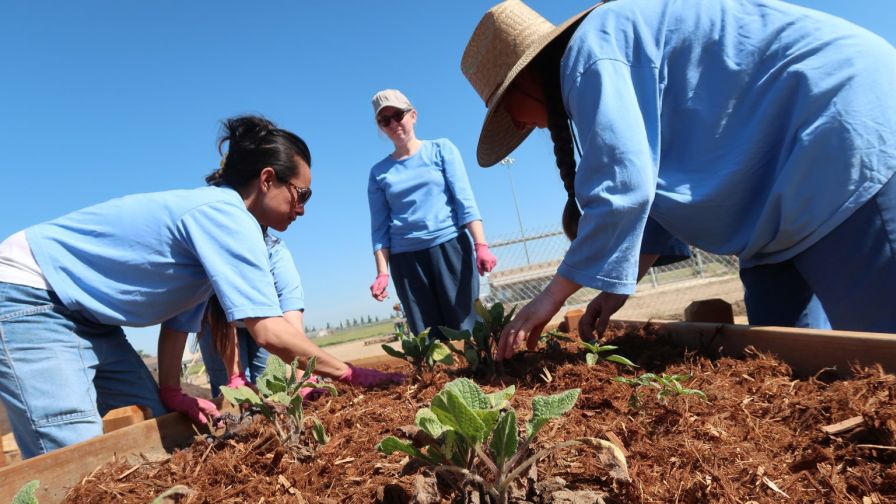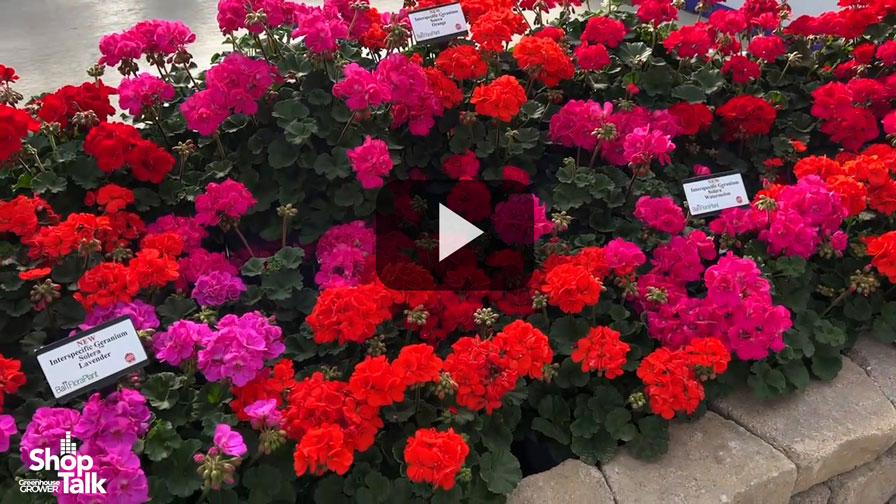Charlie Hall on Why His Economics Background Drives Him Today
 Dr. Charlie Hall of Texas A&M University accepted Greenhouse Grower’s Industry Achievement Award during the Medal of Excellence event at Cultivate’22. Virtually every grower in the horticulture industry knows Dr. Hall, whether it’s from his industry presentations, or his in-person or virtual educational focus. Now, here’s your chance to learn even more about him. Greenhouse Grower’s six-part series on Dr. Hall’s legacy kicked off last week with a closer look at his passion for numbers, and why he says growers need to understand the market forces shaping their company (you can read that here). In Part 2, we dig into Charlie’s background, and how his interest in ag economics was shaped. Watch for Part 3 next week!
Dr. Charlie Hall of Texas A&M University accepted Greenhouse Grower’s Industry Achievement Award during the Medal of Excellence event at Cultivate’22. Virtually every grower in the horticulture industry knows Dr. Hall, whether it’s from his industry presentations, or his in-person or virtual educational focus. Now, here’s your chance to learn even more about him. Greenhouse Grower’s six-part series on Dr. Hall’s legacy kicked off last week with a closer look at his passion for numbers, and why he says growers need to understand the market forces shaping their company (you can read that here). In Part 2, we dig into Charlie’s background, and how his interest in ag economics was shaped. Watch for Part 3 next week!
Greenhouse Grower: Let’s talk about how you got into this industry, and your background in the economics of the industry and the horticulture industry in general.
Charlie Hall: I grew up in the industry on a nursery in western North Carolina. The nursery was a side business for my folks, but it was back in the days when we did everything ourselves, including sales. There were times when my dad, my mom, my sister, and I would load up the truck and make the rounds to the garden centers. In talking with garden centers, I learned quickly that I’ve got two ears and one mouth, and if I listened in that proportion, it generally kept me out of trouble.
When I made these visits, I would ask them, what product are you having trouble getting, and what product are you getting now that you’re not satisfied with? They’d relate all that information, and I’d take it back to mom and dad. That’s one of the things that really influenced me early on: I recognized the importance of having a value proposition. I didn’t even know those words at that time, but I knew it meant supplying what people wanted, at a good price and in great quality. I don’t know that our plants were anything stellar in the industry at that point in time. We were just the only game in the area, and so people gravitated to us. I look back at some of the things we did in the family business and I kind of cringe. But when the industry is growing at 14% every year, the rising tide floats all boats, so we were pretty successful.

Dr. Charlie Hall is one of the featured speakers at this year’s GROW Executive Summit. Click on this image to learn more and to register!
At that time, I was not necessarily planning on going into horticulture. I was actually in pre-pharmacy when I first started at the University of Tennessee. Third-quarter Chemistry quickly deluded that dream. I started looking at ag economics, which was described as farm and ranch management. That sounded intriguing, so I switched my major and started taking ag economics classes. Other than the “History of Economics” course, I did pretty well. In fact, there was a farm management course that was more like agribusiness management. I made the highest grade in the class, including the grad students, and that really was a pivot point for me. That microeconomic background resonated with me.
For many years, I focused on the microeconomic side of running horticultural businesses. But when the Great Recession hit, it led to me looking at things with a more macroeconomic view. The Great Recession really sealed the deal because all of a sudden people were interested in their macro environment. They weren’t making money in spite of themselves. That led to this focus on analyzing both the macro environment (where is the industry headed, what’s the economic situation, what’s the economic climate going to be) as well as the strategic responses internally that you should be making. When I joined both of those together, that’s when my reputation was really enhanced.
I’ll jokingly say that there’s nothing like a good recession to increase the demand for what an economist has to say, but it really did. I was at the right stage of my career where people were wanting to hear this information. When you have an audience that’s willing to listen and wants to hear what you have to say, and you’re then able to tell a joke or two during a talk, people start thinking you’re a pretty good speaker.
In the early part of my career, I would have said I’ve arrived. But now there’s a higher order need. I want to make a difference in people’s businesses, and that’s what really drives me right now.











